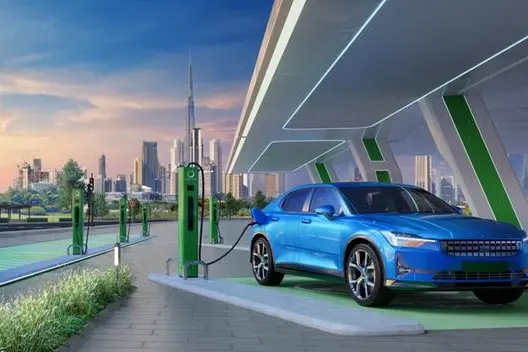On Monday, Zero Carbon Charge (CHARGE), the first company in South Africa to establish a nationwide network of solar-powered, off-grid, ultra-fast EV charging stations, announced a R100 million equity investment from the Development Bank of Southern Africa (DBSA).
This calculated investment is a major support of CHARGE’s objective to develop climate-resilient infrastructure and hasten South Africa’s shift to a net-zero transport economy.
“This show of faith by the DBSA is not just financial—it is symbolic. We are truly grateful,” said Andries Malherbe, Director and Co-founder of CHARGE.
Purpose for the R100 million investment
The funding will allow CHARGE’s ultra-fast charging stations to be installed along all national roads at intervals of 150 km.
Because each location is completely off the grid, runs on solar power, and has battery storage, EV drivers nationwide can no longer rely on Eskom and range anxiety is reduced.
Lebogang Seperepere, Acting Group Executive for Project Preparation at the DBSA, commented: “As the DBSA we continue to work with our partners to find solutions that benefit the economy and society at large. We are happy to have invested R100 million in support of Zero Carbon Charge’s off-grid EV charging, which will not only assist in growing the EV market in South Africa, but also create jobs, support the economy, and mitigate climate change.”
Benefits for South Africans
In addition to providing clean transport, CHARGE’s model significantly boosts the rural economy.
Five percent of annual electricity revenue will go to landowners, providing a steady source of income, particularly in times of climate volatility.
Economic growth in rural communities will be anchored by the support of local jobs and farm stalls surrounding each site.
“I commend the DBSA for its unwavering professionalism and commitment throughout the due diligence process,” said Joubert Roux, Founder of Zero Carbon Charge. “We are honoured by their support and determined to deliver.”
Purpose of DBSA’s Product Innovation Unit
The purpose of the DBSA’s Product Innovation Unit is to support catalytic infrastructure initiatives that yield macroeconomic and environmental benefits.
This mandate is best demonstrated by CHARGE’s integrated approach, which combines clean mobility, renewable energy, and inclusive rural development.
With this historic investment, CHARGE is set to revolutionise South Africa’s energy and transportation landscape.
Launch of CHARGE’s first off-grid, ultra-fast, green EV charging station
CHARGE’s first off-grid, ultra-fast, green electric vehicle (EV) charging station was formally opened to the public on November 28, 2024, in Wolmaransstad, North West Province.
This is South Africa’s first EV charging station powered by renewable energy. It would be a part of the nation’s first nationwide network of 120 solar-powered charging stations, which CHARGE plans to install on major highways at 150-kilometer intervals over the course of the upcoming year.
“We are thrilled to be officially opening our first off-grid charging station, which marks a significant milestone in South Africa’s transition to EVs and a carbon-free future. This has been a three year journey, highlighting our commitment to making our off-grid network a reality as we believe it will benefit South Africans in multiple ways,” said Joubert Roux, Executive Chairman of CHARGE, during the launch.
Description of the Wolmaransstad off-grid EV charging station
The Wolmaransstad off-grid EV charging station has two AC charging stations for plug-in hybrids and six cutting-edge DC fast charging stations for EVs. A car can be charged using the DC fast chargers in roughly twenty-five minutes.
Additionally, drivers can stop by the station’s farm stall for a bite to eat and a cup of coffee. Customers will be able to manage their charging needs and transactions at CHARGE’s EV charging stations with ease thanks to an app that is available for both iOS and Android.
The 120 charging stations in the network, including the Wolmaransstad charging station, will generate revenue for the landowners who own the facilities. Five percent of the money made from cars charging on their property will go to the landowners.
“As we plan the rollout of more EV charging stations across the country, we will continue to work closely with government and key partners to help South Africa meet its carbon emissions reduction targets,” Roux concluded.
















